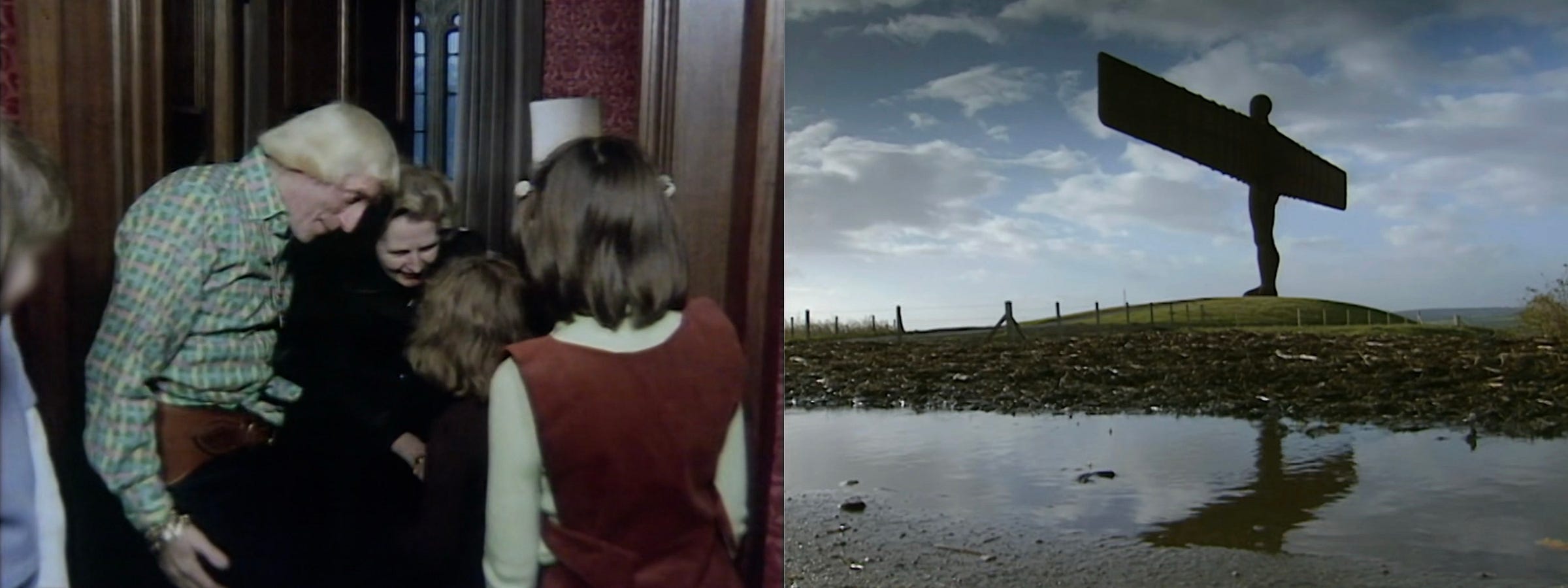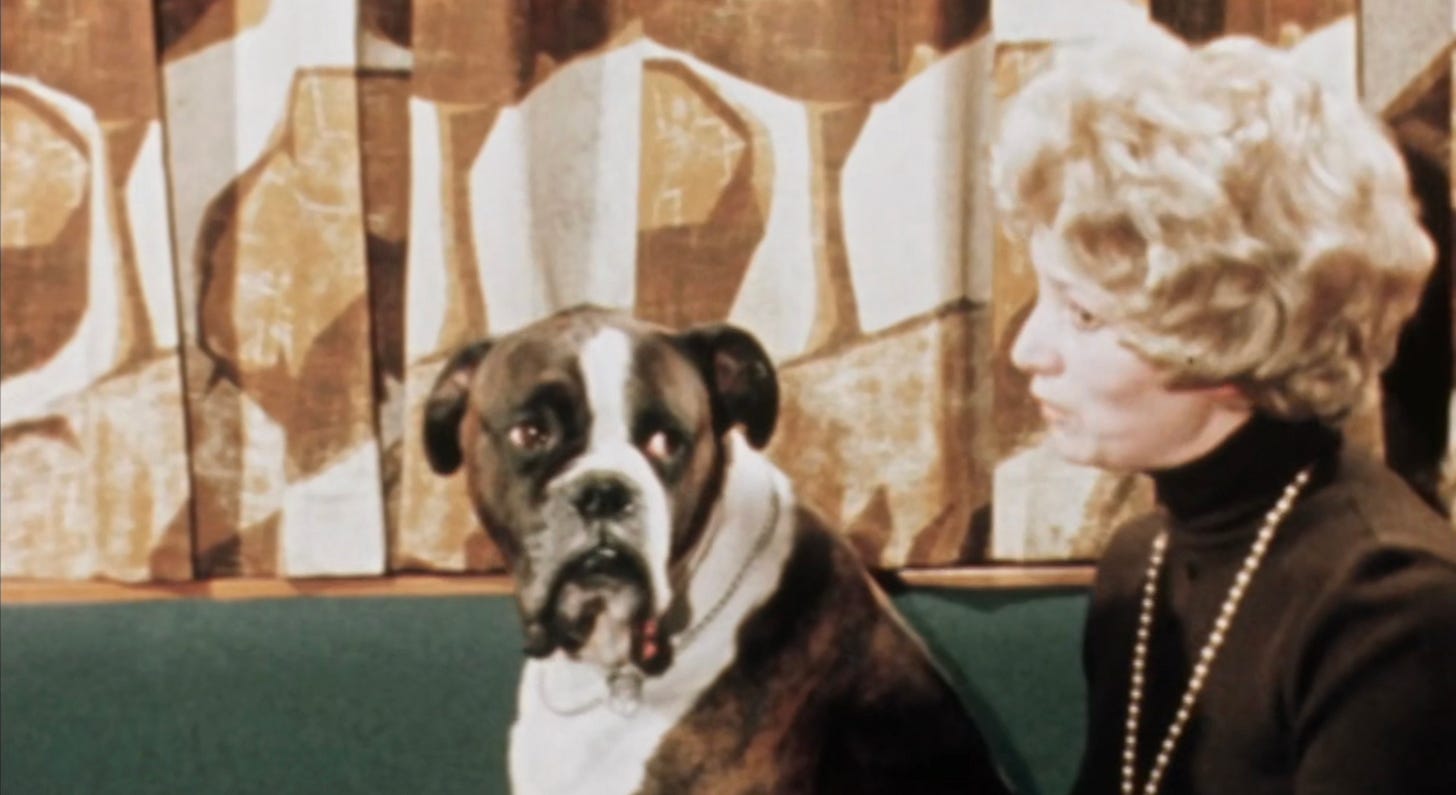Adam Curtis's United Kingdom
A few words about 'Shifty'
A couple weeks ago now, in my regular Friday recommendations round-up, I spotlighted the new Adam Curtis series Shifty: Living in Britain at the End of the Twentieth Century. It’s the latest in a long career of eclectic documentary essays about the UK, the world, economics, and social dynamics. Curtis is, to a fault, a voice for the current generation—not a generation defined by age, but by a collective sense of alienation. Using incredible finds from endless archive diving—plus excellent soundtracks!—his body of work tells a story of a world created in the image of market logic and imperial fantasies. He exposes the lie inherent: that all of this has been natural, inevitable. In Curtis’s United Kingdom, everything is a product of choices made and actions taken to deliberately reshape society, without any real control over the consequences.
This view of the world puts Curtis in conversation with some unexpected contemporaries, like Christopher Nolan, whose grand scale Hollywood productions nonetheless evince a similarly clear idea of action, consequence and the weight of choice in constructing our reality. This year, it has also put Curtis in conversation with Danny Boyle and Alex Garland, who made 28 Years Later, a new masterpiece born out of a post-Brexit Britain. That both find common reference points in Jimmy Savile and the Angel of the North seems at first like coincidence—using Young Fathers music, too—but considering their meaning in the context of a collapsing British identity, it shouldn’t surprise anyone that they inform any artists sorting through the wreckage.

Shifty, like 28 Years Later, examines the psychology of British life in the shadow of Brexit, though from opposite ends, with Curtis delving into the historical lead-up, while Boyle and Garland envision a post-apocalyptic future. This is the second in a row of Curtis’s long documentaries to eschew voice-over in favour of archival clips and occasional onscreen text setting context and weaving narrative. Every episode in the five-part series opens with the same text.
“There come moments in societies when the foundations of power begin to move. When that happens, things become… Shifty.”
To be completely honest, through almost the entire series, I could not understand what that setup meant. I didn’t really understand much of the series, either. More than most Curtis joints, Shifty feels like a grab bag of material. His work has been accused of being more about mood than anything. Than fact, certainly. Prone to gross simplification and overly determinative narrative-building. Shifty takes that to an extreme, starting with a somewhat flubbed point about the way Margaret Thatcher’s winning campaign harnessed anti-immigrant sentiment to secure victory, a dubious interpretation of the historical record despite framing the entire first episode. So, perhaps, Shifty is merely a mood. That is how I approached it through much of its running time, enjoying grander ideas at work, and all that wonderful, idiosyncratic footage. A TV interview with a woman and her spontaneously sex-changing dog is one of the funnier things I’ve seen this year, and a wonderful example of the circular cultural conversations we’ve been mired in for decades.
It was the end of the series, literally the last ten minutes or so, when it all finally clicked into place for me. Shifty is about the very feeling of dislocation captured in its shambolic construction. More than that, it locates the point of origin for that dislocation in Thatcher’s push toward a hyper-individualized, market-oriented economy. As the neoliberal era took shape over the last decades of the twentieth century, the new political mode saw a wresting of power from labour and collective social values, and also a ceding of power by politicians themselves. Curtis pays particular attention near the end to Gordon Brown, under Tony Blair’s government, handing the power to set interest rates over to the Bank of England. This move—seemingly sensible at the time, and even logical now—represents for Curtis a major shift in the “foundations of power” he described. In handing away the government’s power to shape monetary policy, New Labour separated the public and its elected officials from the levers of democratic power, a part of a wider scale neutering of the public as a public. There is no such thing as society in Thatcher-land, after all.
What Shifty depicts is that interim period, that liminal state, in which foundational changes occur, and people find themselves at sea, often without even realizing it. Not before it’s too late. Except it’s never too late, and this is also Curtis’s subject. His work over decades now has been about narrativizing the modern world as viewed through modern forms of media, beginning in the early twentieth century, up to the present. But the dilemma he has increasingly faced is the ways in which his films in fact contribute to a sense that the forces shaping our lives are simply beyond our control, so influenced by the decisions of elites, the political class, and the holders of capital. Shifty is no different, except that it also depicts the public’s complicated acquiescence to the new order. Not just sheep, the series shows how people often did organize to push back against the changes occurring, and how these were transposed into the cultural sphere, where liberals found safety in aesthetic challenges to systems rather than foundational ones. This, too, was a ceding of power, and at the very end of the series, Adam Curtis questions his own project along exactly those terms.
The unaccountable forces of finance and tech. Everyone now lives in their world, and a sense of powerlessness and anger is spreading. Is that the price that has to be paid for individualism? Or will people come together as they did in the past and fight back? Or is this just another feedback loop of nostalgia? Repeating back the sounds, dreams, and images of the past, which is the way the system controls you. And is the way this series was made.
That closing text plays mostly over footage taken, I believe, from the massacre sequence in Mike Leigh’s Peterloo, about the 1819 clash between the public demanding democratic rights, and the aristocracy bent on putting them down. Here, Curtis attempts something unusually galvanizing, suggesting the excellence of his art is only a fact, historically speaking, if it becomes part of prompting something new, another move in the foundations of power, this time back to where it belongs: with the people.
Further writings to pique your interest:




